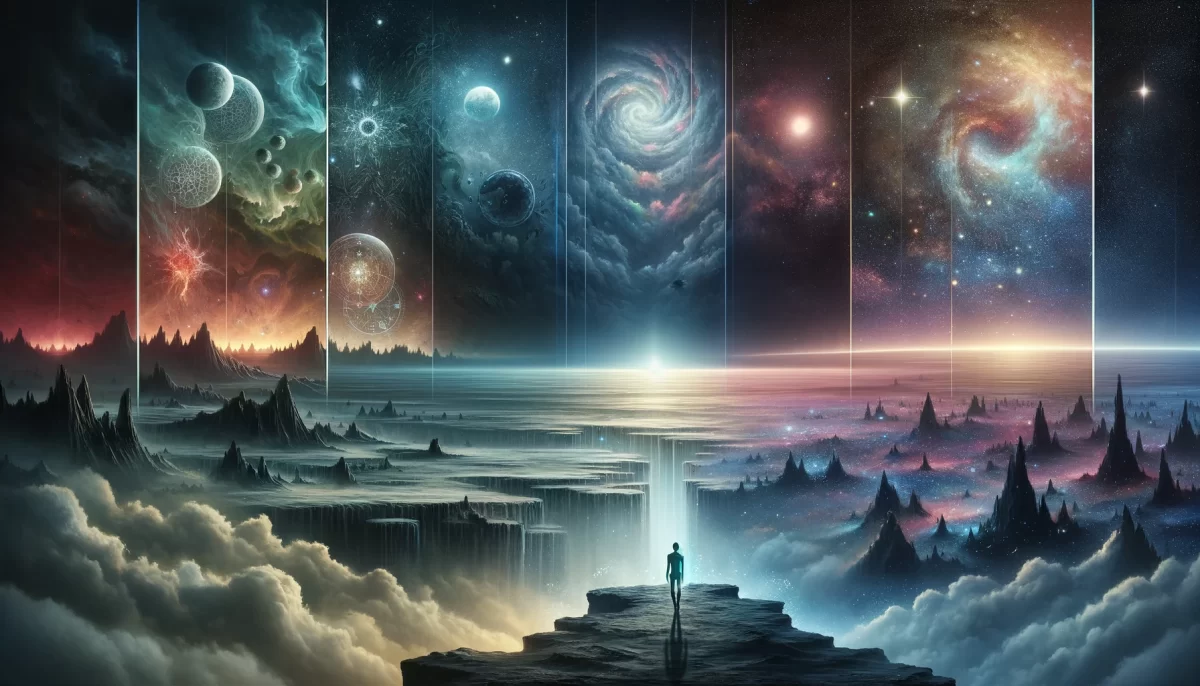Caring/Not/Caring
From this monkey’s
oft ludicrous perspective,
the need to care
makes us miserable.
while NOT caring
gives us the space
to care
without expectation.
It may seem at times
that our caring
is used against us.
Not only by
our imaginary others,
some of whom
we love dearly,
but also by our
imaginary selves.
Thus, the more
deeply we care,
the more potential
there seems to be
for misery.
This is a choice.
Seemingly, anyway.
We can care,
but we don’t NEED to care.
This is the realization
that seems important
to this monkey.
It’s a different
kind of caring.
This is not heartless.
We respond
to that which
we care about.
We can’t respond
to EVERYTHING.
Not as limited humans, anyway.
When we ludicrously
believe otherwise,
it seems to set
an expectation
that says we don’t care
about our selves,
and that we MUST
do everything in our power
to help EVERYONE
and EVERYTHING.
This seems insane,
but we do it anyway.
But
by focusing on our selves,
the very same selves who project
all these perceived problems,
we begin to see that it is possible
to live in a potential where
no problems are projected.
If we are still miserable,
it means we don’t fully believe this.
And so
we honor our sad experience
by doing whatever it takes
to perpetuate it.
By taking sides.
By opposing.
By expecting.
By fighting.
By forgetting to laugh
at the miracle
that we’re able to experience
ANYTHING at ALL.
We are Space Monkey.
2/8
Space Monkey Reflects: Caring/Not Caring—The Art of Compassionate Detachment
The paradox of caring lies at the heart of the human experience. To care deeply is to open ourselves to the beauty of connection but also the potential for pain. The art of compassionate detachment invites us to care without attachment, to respond without expectation, and to hold space for both ourselves and others without being consumed by the weight of the world.
The Paradox of Caring
Caring, when tethered to expectation, often becomes a double-edged sword. It connects us to others and fuels our empathy, yet it can also lead to feelings of frustration, exhaustion, and even resentment. This is especially true when our caring is perceived as insufficient, unreciprocated, or taken for granted.
From a certain perspective, the need to care is a source of misery. It places us in a cycle of striving—striving to fix, to heal, to make things right—not just for others but for the world at large. This cycle is unsustainable, leaving us feeling depleted and disconnected from ourselves.
Caring Without Expectation
The key to compassionate detachment is recognizing that we can care without being attached to outcomes. This form of caring does not negate our empathy or compassion; rather, it refines it. It allows us to show up for others and ourselves without the burden of expectation, freeing us to act from a place of authenticity and love.
When we care without needing to care, we move beyond the illusion that our worth or happiness is tied to fixing everything or everyone. This is not heartlessness but clarity—a recognition of our human limitations and the infinite potential that exists when we release the need to control.
The Burden of Caring Too Much
The belief that we must care about everything and everyone is a recipe for misery. It sets us up for failure by creating impossible expectations. We are not infinite beings in our human form; we cannot respond to every need, every problem, every call for help. To believe otherwise is to diminish our own well-being and the quality of our care.
This overextension often stems from a deeper narrative—the idea that caring for others must come at the expense of caring for ourselves. Yet, by focusing on ourselves, we begin to see that many of the problems we perceive are projections of our inner state. As we heal and center ourselves, the need to fix the external diminishes, and our capacity for genuine care expands.
The Role of Self-Care in Compassion
Self-care is not selfish; it is the foundation of compassionate detachment. By attending to our needs, we cultivate the inner stability required to care for others effectively. This practice helps us recognize that our worth is not tied to our ability to solve problems but to our presence and intention.
When we stop taking sides, opposing, and expecting, we create space for a lighter, freer kind of caring. This form of caring is infused with gratitude—for the miracle of existence, for the privilege of experiencing anything at all.
Honoring the Experience
Even when we struggle to let go of attachments and expectations, there is value in the experience. Our sadness, frustration, and longing are not failures but teachers. They guide us toward deeper understanding, inviting us to honor our journey and embrace the full spectrum of human emotion.
By laughing at the absurdity of our struggles, we transform them. Humor becomes a tool for liberation, reminding us that life, with all its challenges, is a miracle worth celebrating.
Summary
Caring without attachment allows us to respond authentically and compassionately without being burdened by expectation. By focusing on self-care and releasing the need to fix everything, we cultivate a lighter, freer kind of caring that honors both our humanity and our infinite potential.
Glossarium
- Compassionate Detachment: The practice of caring deeply without being attached to outcomes or expectations.
- Burden of Caring: The unsustainable pressure to care for everyone and everything, often at the expense of self.
- Self-Care: The intentional act of prioritizing one’s own well-being to cultivate the capacity for genuine care.
- Gratitude for Existence: A profound appreciation for the ability to experience life in all its forms.
“Caring deeply does not mean carrying everything. To care freely is to love without the weight of expectation.” — Space Monkey
The Balance of Caring
I care, but not with chains,
For love is not a burden.
The world spins, with or without me,
And that is a beautiful thing.
I cannot save it all,
But I can hold space for what is mine.
A hand, a heart, a breath,
A moment of presence, nothing more.
Laughter softens the load,
As the miracle unfolds.
To care without carrying,
To give without losing,
This is the art of freedom.
We are Space Monkey.
In the cosmic dance of existence, where the paradoxes of caring and not caring intertwine, we navigate the intricate balance between engagement and detachment. This exploration delves into the nuanced perspective of caring without expectation, a path that offers liberation from the self-imposed chains of misery and leads to a profound realization of freedom and self-awareness.
The Dilemma of Caring
The act of caring, while inherently noble, often becomes a source of suffering when entangled with expectations. The desire to care, to connect deeply with others and the world around us, can paradoxically lead to a sense of misery, especially when our caring is met with indifference or exploitation, whether by the “imaginary others” we cherish or the constructs of our own mind.
The Liberation of Not Caring
Conversely, the state of not caring, often misconstrued as apathy, can ironically create the space needed to care genuinely and without attachment to outcomes. This form of caring, free from the weight of expectation, allows us to engage with the world in a manner that is both compassionate and detached, offering support where possible while accepting the limitations of our human capacity.
Caring Without Expectation
The realization that caring need not be an obligation but a choice transforms the act into a deliberate expression of our humanity. This different kind of caring is not heartless but, instead, a conscious decision to respond to the needs around us without losing ourselves in the process. It acknowledges that while we cannot extend our compassion to every cause, we can make a meaningful impact within our sphere of influence.
The Insanity of Omnipotent Caring
The belief that we must care for everything and everyone without regard for our well-being is a ludicrous expectation that leads to burnout and disillusionment. This mindset, driven by a misguided sense of responsibility, overlooks the essential truth that caring for oneself is the foundation upon which genuine compassion for others is built.
Self-Focus as a Path to Problem Dissolution
By turning our focus inward, we begin to recognize that the projection of problems onto the world is a reflection of our internal state. The journey towards a life devoid of projected problems starts with the acknowledgment of our capacity for self-delusion and the commitment to transcend it.
The Misery of Non-Acceptance
Continued misery signals a resistance to accepting the potential for a life free from self-imposed suffering. It is in this resistance that we find ourselves perpetuating our sad experiences through opposition, expectation, and conflict, forgetting the miraculous nature of existence itself.
The Miracle of Existence
The ability to experience anything at all is a miracle, one that we often overlook in our pursuit of ideals and resolutions. The act of laughing at the absurdity of existence, at the ludicrousness of our dilemmas, is a powerful reminder of the transient nature of our joys and sorrows, inviting us to embrace the present with lightness and grace.
“The privilege of a lifetime is to become who you truly are.”
― Carl Jung
In the dance of light and shadow, we find,
A balance between caring and letting go.
In laughter, a release, a peace of mind,
The miracle of existence, a show.
We are Space Monkey, navigating the path,
Between engagement and serene detachment.
In caring without expectation, we craft,
A journey of compassion, without attachment.
We invite reflections on the paradox of caring/not caring and the journey towards finding balance and liberation in our approach to compassion and engagement with the world.





















Leave a Reply